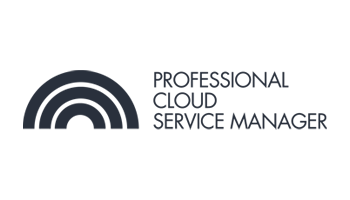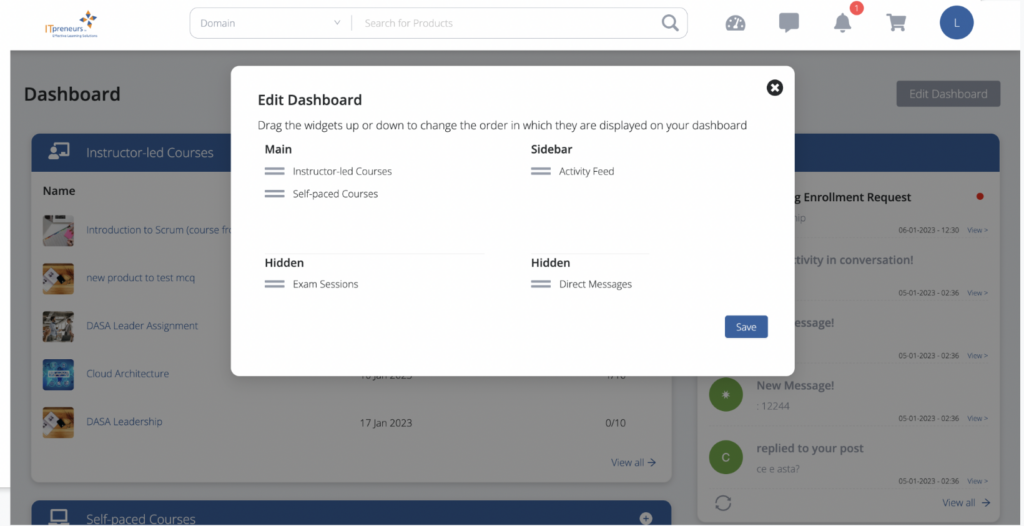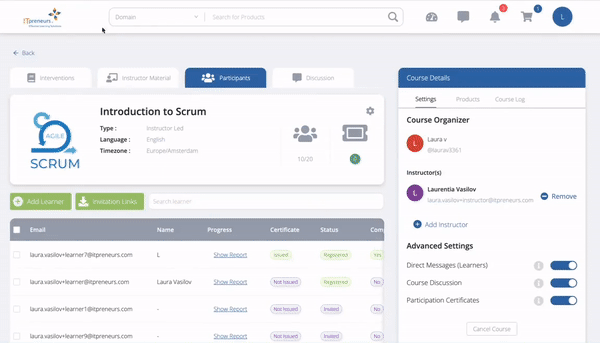Cloud is a recurring theme in IT training at the moment as interest in cloud training has started to accelerate in recent times. Cloud emerged at the top of LinkedIn’s hottest skills in demand 2016 analysis and again during our executive round table – The Most In-Demand IT Skills in 2017. Both spotlighted cloud skills being in high demand. The 2016 statistics tell the same story. Cloud skills are not only in demand but also a top concern for companies – equal to (and sometimes surpassing) security concerns this year. At the risk of stating the obvious, appropriate training will be key to bridging this gap.
What does this mean for those in the IT service management (ITSM) domain i.e practitioners, consultants, trainers, and managers?
Diving into the ‘Cloud & ITSM’ Discussions
Many thought leaders are talking about the effects of cloud on ITSM. In addition, AXELOS and the Cloud Credential Council’s (CCC) whitepaper serves as a good starting point to understand the complexities of cloud service management.
For many companies, cloud computing offers an opportunity to outsource IT for more efficient and scalable cloud services. Other companies are using cloud to transform their business model, in part or in its entirety. Computing resources are becoming intangible; hosted off-site, managed externally, residing in virtual machines, with limited access and varying levels of control. Procuring, changing and managing systems has also become somewhat decentralized or more complex due to cloud. Of course, the service level agreements underlying ITSM will be central to successful cloud service management, but there’s much much more.
This 2015 ‘Future of IT Service Management’ study by Enterprise Management Associates, Inc. (EMA) asked how cloud has affected ITSM in the organization. In short, cloud is having a domino effect on the ITSM organization, the intricacies of which have deep roots in ITSM organizations’ processes and procedures.
The majority saw cloud as an opportunity for expanding ITSM capabilities.
Also shown in the chart above are three core areas cloud is pushing ITSM organizations; automation in service provisioning, focus on DevOps and asset management. Cloud as a mechanism for reducing cost and ITSM was a close fourth (27%), followed by pressure to justify costs and shorter review cycles for change management. But overall, the study found only 15% of organizations expected to downsize ITSM (for various reasons, also including cloud). True as this may be for some companies, the ITSM organization still needs to cater to the changes brought about by outsourcing to the cloud.
The EMA study goes into more detail around service catalogs, application discovery and dependency mapping (ADDM) and configuration management amongst many other aspects of ITSM mentioned in its study. If you’ve not had the chance yet, and want a deeper understanding, do give it a read.
OK, Business Models Change, ITSM Does Too…What Now?
Organizations and IT professionals will need to consider re-skilling in these emerging technologies, and building on existing best practices. Current best-practices can fall short in areas relating to cloud computing as they themselves have yet to be updated. This means that an organization can advance significantly with its adoption of the latest technology while its supporting processes and operational practices fall behind and in some cases become antiquated.
“Cloud computing and cloud based services are disruptive, and while technology advances rapidly, and continuously evolves, common frameworks, standards and models are updated at a much slower rate. Interestingly, it is this very gap which allows organisations to gain first-mover and first-adopter advantage, but only after they understand and realise how to get the most value and success from cloud. The Professional Cloud Service Manager course fills in such gaps and helps organisations understand how to gain from cloud computing, deal with the disruption, and strategise for success.”
– Mark O’Loughlin
Author, Professional Cloud Service Manager, ITIL Author
This is not only critical for organizations to make the ITSM to cloud service management (CSM) transition successfully. It is also important as individual IT professionals to stay ahead of the job market (cloud skills shortage) and remain relevant in a cloud-based future.
The EMA study assessed what practices are integral to ITSM organizations (below). With such a broad spectrum of practices, what to focus on in adapting processes to cloud can be quite difficult. That’s where a certification such as the CCC Professional Cloud Service Manager (PCSM), which is role-specific, vendor-neutral and compatible with major ITSM best practices and technical vendor training, stands out on its own.
Moving from ITSM to CSM
The Professional Cloud Service Manager certification is unique in the market. A vendor-neutral, role-specific cloud training for ITSM, aligned to industry best-practices such as ITIL. Help your ITSM clients breakdown and translate the many aspects of ITSM and ITIL practices being challenged by cloud computing into effective strategies and processes tailored to meet the disruption caused by cloud computing. By undertaking a PCSM certification, ITSM professionals will be able to:
- Compare and contrast cloud service management with traditional IT service management in the existing IT organization.
- Predict the complexities involved in designing, deploying, and running cloud services.
- Examine the challenges with purchasing cloud-based services, understand the cloud provider/consumer relationship and the cloud marketplace.
- Analyze an organization’s strategic assets and capabilities to successfully design, deploy and run cloud services – including identification of key roles.
- Differentiate between potential risks and benefits of adopting cloud – and identify strategies to reduce risk and avoid issues.
- Produce an initial cloud adoption strategy – with analysis of and “right-sizing” cloud services at the design stage.
More importantly, they’ll be able to secure the success of their organization’s cloud initiatives and their career in cloud service management.
Ready to explore this unique training experience and course offering for your ITSM clients? Get in touch!
Special thanks to Mark O’Loughlin for his insights and input on this post.
About the author

Marketing professional with communications, strategy and management experience across various sectors including:
– IT Training – Cloud and Big Data
– Software Development – enterprise and consumer applications across various verticals
– Digital Financial Services – urban and rural
– Higher Education
Genuinely enjoy helping people with their professional and personal goals by sharing relevant information and insights, in and outside the office. Feel free to connect, just please include a brief introduction if we’ve not met, thanks.




